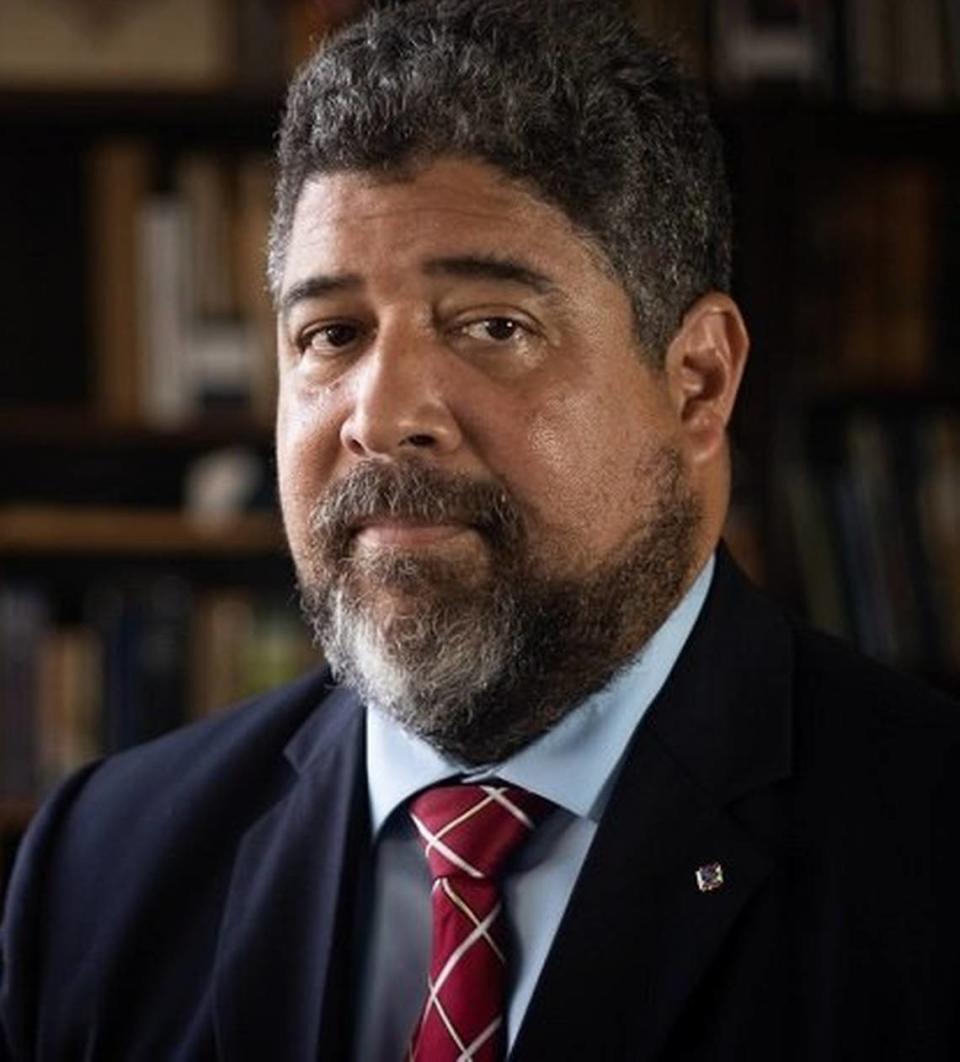In courting U.S.’ enemies, hemisphere’s dictators are a threat to our security | Opinion
- Oops!Something went wrong.Please try again later.
Coverage of Miguel Diaz-Canel’s visit to Iran has been almost exclusively viewed through the prism of economic engagement. This includes the Miami Herald’s Dec. 7 story Cuba leader meets Iran’s supreme leader, opens up the island to Iranian investors.”
The story highlights the four high-level meetings between Cuban and Iranian officials. Diaz-Canel’s visit to Iran on Dec. 4 was “the first time in 22 years that a Cuban leader has visited Iran since Fidel Castro went to Tehran in 2001.”
Iran’s president Ebrahim Raisi visited Cuba in June, and Iranian Foreign Minister Hossein Amir-Abdollahian visited in February. The leaders also met on the sidelines of the U.N. General Assembly in September.
But this economic framing ignores broader national-security issues. In his novel “The Ground Beneath Her Feet,” author Salman Rushdie observed that, “The only people who see the whole picture are the ones who step outside the frame.”
In addition to Cuba, Iran’s president visited Venezuela and Nicaragua in June. If the issue were forging an economic alliance among countries sanctioned by Washington, Venezuela and Cuba would make sense, but Nicaragua has a free trade agreement with the United States. What do Nicaragua, Venezuela and Cuba all have in common? They are all dictatorships hostile to the United States and the existing world order. Nicaragua has purchased Russian tanks, permitted a Russian base on its territory and, like Cuba, backed Putin’s illegal war in Ukraine on diplomatic and propaganda fronts.
We should also listen to what they are saying.
In Venezuela, according The Jerusalem Post, Iran’s Raisi met with Nicolas Maduro and “spoke about the need to confront the U.S. and overturn the U.S.-led world order that has existed since the end of the Cold War.” In Nicaragua, he repeated the themes of “the resistance of the people contributes to change in the world order” and bringing “an end to the hegemonic projects of the United States.”
Nicaragua’s President Daniel Ortega and his wife, Vice President Rosario Murillo, welcomed Iran’s Raisi and first lady Jamileh-Sadat Alamolhoda at Managua’s Non-Aligned Square, where Ortega recalled that Nicaragua and Iran had “twin revolutions,” which both triumphed in 1979 and are twinned in a permanent struggle against the empires and their arbitrary sanctions.
Iran and Cuba are state terror sponsors, and the tactics of their respective intelligence agencies have been applied against dissidents in Nicaragua and Venezuela to consolidate both dictatorships.
Cuban soldiers are training in Belarus and fighting in Russian uniforms on the front lines in Ukraine. Moscow is using Iranian drones against Ukrainian targets.
In addition, China is expanding its espionage capabilities against the United States with bases in Cuba.
The current international system, which has been ruled by democracies since 1945, has an alternative challenging it, led by Beijing, Moscow and Tehran, with allies in Havana, Caracas and Managua.
The Cuban intelligence service has a history of sharing and selling information with actors hostile to the United States. The cases of accused secret agent Ambassador Manuel Rocha, who had access to the National Security Council, Ana Belen Montes at the Pentagon in the Defense Intelligence Agency, Walter Kendall Myers at the State Department and others working for the Castro regime’s Intelligence Directorate have passed on top-secret information to America’s enemies in Beijing, Moscow and Tehran, shaping U.S. policy against America’s interests and costing both lives and treasure.
Cuba and Iran have long-term relationships with terrorist groups Hamas and Hezbollah, and a decades-long hostility toward Israel, a U.S. ally in the Middle East. Since Oct. 7, Iran and Cuba have publicly backed Hamas and refused to condemn its terrorist attacks against Israel. Hamas is also receiving support from Beijing and Moscow.
First Ukraine, then Israel. Who will be the next democracy friendly to the United States to be targeted?
The whole picture is disturbing, but needs to be recognized and countered to defend democracy and human rights.
John Suarez is executive director of the Center for a Free Cuba.


